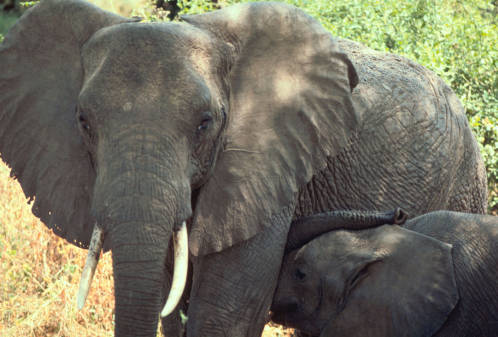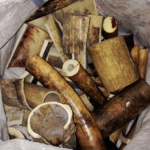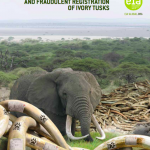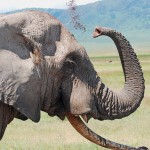
In China, civil society is pressuring the government to replace the current dual-market, mixed-message ivory legislature with a full blanket ban.
At the opening session of the Chinese People’s Political Consultative Conference on March 3, former NBA star Yao Ming delivered a petition calling for an outright ban of the sale, import, purchase and transport of ivory and ivory products. Among the signatories were influential heads of big business – many of which belong to the ruling Chinese Communist Party – such as Wang Wenjing (Chairman and CEO of Yonyou Software) and Liu Jun (Chairman of Eagle International Holdings).
If this was adopted, it would seal the legal loophole that currently enables criminal syndicates to launder “blood ivory” from the black market into commercial circulation. Despite the worldwide ivory trade ban in 1989, the CITES Parties voted to allow China to purchase more than 60 tonnes of stockpiled ivory in a one-off sale in 2008. Reintroducing tusk trading to a market of maturing purchasing power both stimulated demand and encumbered regulation — and cultivated a thriving black market, since distinguishing illegal from legal ivory is not possible. A 2011 International Fund for Animal Welfare (IFAW) investigation on China’s ivory markets discovered that 59.6% of licensed facilities sold illegal ivory, and unlicensed and non-compliant ivory facilities outnumbered legal ones nearly six to one.
Since the 2008 sale, elephant poaching rates have made a tragic comeback, reaching pre-1989 levels of up to 30,000 a year. Meanwhile, a 2012 survey by WildAid revealed that the Chinese knew little of the pain behind the ivory products they were purchasing. Of the 961 Beijing, Shanghai and Gaungzhou participants surveyed, more than half thought ivory came from domesticated or living elephants (11.5% and 11.3% respectively) or elephants that had died of natural causes (33.8%).
But there now are signs that awareness, and support, is spreading among the Chinese public.
Also on March 3, which was the first ever World Wildlife Day, a six-minute documentary On Elephant and Ivory was released. The film features Transformers 4 actress Li Bingbing, speaking in her native Mandarin and coming face to face with the carcass of a speared female elephant – her face removed by poachers for her tusks.
And this is just the latest in a number of developments in a campaign which has seen an intensification in momentum and results recently. A series of public service announcements entitled “Say no to ivory” featuring the popular actress and basketball star have gone viral on Sina Weibo, China’s Twitter. Then on February 27, a number of big business CEOs in China – including 10 individuals from the Forbes 2013 China Rich List – released a pledge to never purchase, possess, or give ivory as a gift.
On top of this, the WildAid survey reveals that 94% of the participants support an out right ban on ivory products in China, to stop the poaching of elephants.
And the government seems to be responding. Last year, the State and National Forestry Departments launched an ongoing effort where it appeals to travelers through text message not to purchase ivory or rhino horn. In January, Chinese officials crushed more than six tonnes of its seized ivory stockpile – a symbolic move that was widely documented in national and global media. The following month, on February 13, the Chinese government took part in and signed up to a declaration at the London Conference on the Illegal Wildlife Trade, stating that they “support the existing provisions of CITES prohibiting commercial international trade in elephant ivory”.
Meanwhile Hong Kong, the gateway through which much of the ivory is smuggled to mainland China, in January took decisive action to burn its ivory stockpile, and local organisation HK for Elephants has launched a petition to ban ivory sales in territory, and will deliver this to the region’s government. Show your support and sign here.
Elephant populations have halved in the last 10 years, and the significance that extinguishing the black market in China – world’s largest demand source – would have, cannot be underestimated. It would be a monumental step towards protecting elephants themselves being extinguished from this planet – a scenario that would amount to an environmental, and moral, catastrophe.





1 thought on “Chinese Public Pushes for Full Ivory Trade Ban”
Comments are closed.